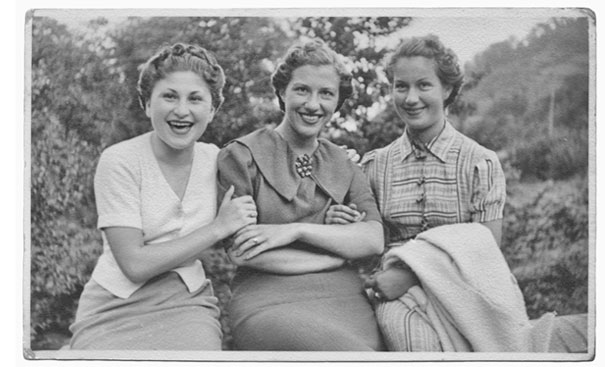HOW TO GET POLISH CITIZENSHIP
How to become a Polish citizen: Your 5 PATHS TO POLISH CITIZENSHIP WITH PROS & CONS
There are 5 potential paths to getting Polish citizenship. Each path his its own set of requirements that must be met and the process of becoming a Polish citizen can sometimes be complex. However, it all begins with understanding and identifying which path applies to your situation.
No matter which of the paths you take, your step-by-step process may have some similarities but it is important to focus on the specific requirements for each path when learning how to become a Polish citizen. In learning how to obtain Polish citizenship you will realize it is a legal process of which Poland is strict. It is important that you meet all of the requirements to have your citizenship application approved.
Some of the basic steps for how to become a Polish citizen include:
- Confirm your eligibility and identify which path will be best for your situation.
- Gather all documentation (check out this guide to find out what documents you need to get Polish citizenship)
- Submit documents and application to local voivodeship office (if in Poland) or local consulate (if outside of Poland)
- Pay fees
- €360 for consulate
- PLN 20 for notary signature authentication (required for authenticating documents)
- Wait for about 2-24 months for a decision

How Do I Get Polish Citizenship: 5 Paths
There are 5 primary ways to get citizenship with Poland. Each of which has its own individual set of requirements. When learning how to get Polish citizenship, it is important to first identify which path would be the most efficient for your circumstances:
- By birth (path 1 and 2 below)
- By marriage/recognition (path 3 below)
- By granting (path 4 below)
- By restoration (path 5 below)
To become a Polish citizen, you’ll need to understand each path and figure out what is the best bet for you.
PATH 1: Polish Citizenship by Birth or Adoption
When it comes to citizenship, Polish nationality law observes jus sanguinis (meaning the “right of blood”). That means if one of your parents was a citizen at your birth, you are automatically granted Polish citizenship.
But Poland also grants citizenship to those born in Poland to parents who have no citizenship status in any country or whose status is unknown.
Similarly, if you are adopted by a Polish citizen and you are under the age of 16, then you are retroactively deemed a citizen yourself.
If you are eligible for any of these paths, they are how to get Polish nationality without any difficulty.
Applies to any of these:
- Born with at least one parent as a Polish citizen, no matter where you were born
- Born in Poland with parents who are stateless or of unknown status
- Adopted by Polish citizens before the age 16 of
If you are wondering, “How can I get Polish citizenship?” and you have Polish ancestors—you are in luck.
Thanks to Poland’s emphasis on ancestry to determine citizenship, you can become a citizen if your parent, grandparent, and even great-grandparent were citizens.
This route is called citizenship by descent, and many countries offer this. While there are quite a few caveats in place, if you can prove that your direct ancestor was Polish—you’ll likely be eligible be able to get citizenship with Poland.
Requirements:
- Direct ancestry from a Polish parent, grandparent, or great-grandparent
- Ancestor must have held Polish citizenship after 1920
- Ancestor must not have served for a foreign military before 1951 (unless for the Allied forces in WWII)
- Ancestor must not have served in a foreign public office before 1951 (unless given consent by Polish government)
- Ancestor must not have renounced citizenship
PATH 3: Polish Citizenship by Marriage Residence (or by Recognition)
Long-term residence will grant you the right to become a Polish citizen, but this can take a very, very long time.
However, many people whose careers have brought them to the country many years ago may discover that they already qualify for Polish citizenship by residence.
Similarly, another very common form—citizenship by marriage—falls under this category. For an in-depth discussion on that, check out our guide here.
This form is most popular for those who own businesses in the country, get married to Polish citizens, or arise as refugees from other countries.
Because of the long timeline, this isn’t a very popular option. But it does give anyone a chance to be a citizen if they prove their commitment to the country through participation in its economy and culture for many years.
Requirements:
- Continuous and legal residence for 3 to 10 years, depending on status
- Knowledge of Polish language (B1 level proficiency required)
- Determined to not be a risk to the security and public order of Poland
- Depending on your situation, you’ll also need:
- 3 years under a permanent residence permit, stable income, and own or pay rent for housing
- By marriage: 3 years of marriage to a Polish citizen and 2 continuous years of residence as a permanent resident
- Refugee status: 2 years as a refugee
- 2 years as a permanent resident and you have no state
- 2 years as a permanent resident and you are repatriating
- Lived in Poland for 8 years, have had permanent resident status for any length of time, have stable income, and own or rent housing
PATH 3: Granting of Citizenship by the President of Poland
The President of Poland has the right to grant citizenship to whomever asks for it.
This is by far the simplest and quickest way to get citizenship, but it is also a rare occurrence. Unless you have a compelling case to be made to the President, it is hard to imagine becoming a Polish citizen this way.
Still, anyone can ask.
The process:
- No formal requirements for citizenship by presidential grant
- Used for individuals with significant ties or contributions to Poland (scientists, athletes, etc.)
- Application procedure via Voivode or Polish consulate
PATH 3: Restoration of Polish Citizenship
Sadly, many people have lost their Polish citizenship in the past due to historical or political reasons. This has left many of them wondering how to get Polish nationality back after losing it. Fortunately, the process of “Restoration” of Polish citizenship might be a viable pathway.
This provision has helped heal many of the issues of shifting political realities for Poland throughout the 20th century.
Since 1962, Poland has not allowed the revocation of citizenship unless the person voluntarily petitions for renunciation, which requires the approval of the President. However, many Polish Jews were stripped of their citizenship during an antisemitic campaign in 1968. This revocation of citizenship can now be reversed.
People who lost their Polish citizenship before 1999 due to military service, public employment in foreign countries, or the shifting borders of World War II may be eligible for restoration. Applications are processed by the Ministry of Internal Affairs. However, there are restrictions, such as for those involved with Axis powers during WWII.
Requirements:
- Must have lost Polish citizenship before January 1, 1999
- Cannot have served Axis powers or acted against Poland during WWII
- Application through the Ministry of Internal Affairs
How to get Polish Nationality - Identifying Your Path to Polish Citizenship
We often receive calls asking “How can I get Polish citizenship?”. The first step is to identify which path to Polish dual citizenship is the most efficient and successful for you. Polish citizenship offers numerous benefits whether through descent, residency, marriage, or restoration, the path to citizenship can be accessible with the right guidance.
If you’re unsure which route applies to you or need help with the application process, we’re here to assist. Schedule a free consultation call today to begin your journey to become a Polish citizen and enjoy all the benefits it offers within Poland and the European Union.
Frequently Asked Questions
How can I get citizenship in Poland?
There are five major ways you can become a Polish citizen:
- By birth or adoption
- By residence
- By restoring your Polish citizenship
- By descent
- By grant from the President of Poland
Can an American get Polish citizenship?
Yes. If you can meet eligibility requirements for any of the pathways to citizenship, any American can become a Polish citizen. This will also require proficiency in the Polish language (to the B1 level), and the government will have to determine that you are not a threat to security and public order.
Can a US citizen get a Polish passport?
Technically, yes. To get a Polish passport, you need to become a Polish citizen—which is possible for Americans. And since both the US and Poland allow dual citizenship, US citizens can become Polish citizens without losing their status in America. This way, you can remain a US citizen and get the benefits of a Polish passport.
How do I get Polish citizenship by descent?
If you have a parent, grandparent, or great-grandparent who either is or was a Polish citizen and they never renounced their citizenship, you can likely become a Polish citizen yourself. This requires showing proof of your ancestor’s citizenship as well as your connection to that ancestor. It’s also one of the easiest and most straightforward paths to citizenship.
For more information, check out our full guide on Polish citizenship by descent here.
This page was last updated with help by Marco Permunian
Do You Qualify?
Trying to learn if you qualify for Polish citizenship by descent? Contact us, we offer a free consultation to help determine your eligibility.


